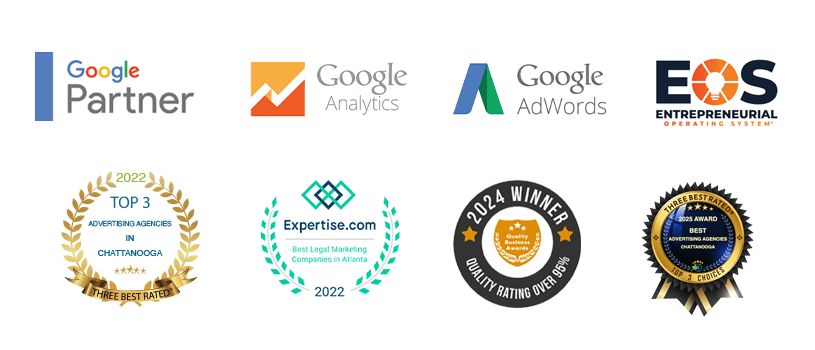News

Domain Authority: The Backbone of Successful SEO Strategies

In the ever-evolving world of search engine optimization (SEO), one metric has gained significant importance in recent years: domain authority. Domain authority serves as a vital signal for search engines to assess the credibility and trustworthiness of a website. This article will delve into the significance of domain authority, exploring its impact on search engine rankings and providing actionable insights to improve it.
What is Domain Authority?
Domain authority, developed by Moz, is a pivotal metric for evaluating a website’s potential to rank in search engine results pages (SERPs). Ranging from 1 to 100 on a logarithmic scale, domain authority signifies the strength of a website’s authority.
To calculate this, Moz’s algorithm considers several crucial factors. The quality and quantity of backlinks play a significant role in determining domain authority. High-quality backlinks from reputable and relevant websites contribute to a stronger authority score. Additionally, factors such as website age, social signals, and overall website performance are also considered in the assessment.
By analyzing these diverse factors, Moz’s algorithm offers a comprehensive evaluation of a website’s authority. This assessment assists website owners and SEO practitioners in understanding their site’s potential to rank well in SERPs and guides them in devising effective strategies to improve their domain authority.
The Impact on Search Engine Rankings
A. Correlation with Search Engine Rankings
The correlation between domain authority and search engine rankings has been extensively studied, consistently demonstrating a strong connection. Research conducted by Moz has revealed that websites with higher domain authority tend to secure better positions in SERPs, thereby amplifying their organic visibility. This correlation emphasizes the crucial role that it plays in optimizing a website’s ranking potential.
In a comprehensive study conducted by Ahrefs, it was found that domain rating, which aligns closely with domain authority, exhibited the highest correlation with organic traffic compared to other analyzed SEO factors. This underscores the significance of domain authority in driving organic traffic and attracting valuable visitors to a website.
By improving domain authority, websites can enhance their chances of achieving higher search engine rankings, resulting in increased organic traffic and greater exposure to their target audience. It is worth noting that while domain authority is not the sole determinant of rankings, it serves as a reliable indicator of a website’s potential to perform well in search engine results.
Website owners and SEO practitioners should prioritize strategies that enhance domain authority, such as building high-quality backlinks, optimizing on-page SEO elements, and fostering positive user experiences. By focusing on these aspects and actively improving domain authority, websites can position themselves for greater visibility, improved organic traffic, and increased success in the competitive online landscape.
B. Trust and Credibility
Search engines view high domain authority as a reflection of trustworthiness and credibility. When a website has a solid domain authority, search engines are more likely to perceive it as a reliable source of information. This trust factor plays a crucial role in determining the visibility and ranking of websites in SERPs.
Factors Influencing Domain Authority
A. Quality Backlinks
Backlinks from authoritative and relevant websites have a significant impact on domain authority. A study by Backlinko found that the number of unique domains linking to a page correlated strongly with higher rankings. Therefore, a strong link building strategy should be an integral part of any effort to improve domain authority.
To attract high-quality backlinks, focus on creating valuable, well-researched, and informative content. Engaging content encourages other websites to link back, signaling to search engines that your website offers relevant information.
B. Website Age and History
Domain age and history also play a role in domain authority. Older websites tend to have more established online presence and credibility. Search engines consider the longevity and reputation of a domain when assessing its authority.
While you can’t change the age of your domain, you can focus on building a strong track record by consistently providing high-quality content and maintaining a positive online reputation.
C. Technical SEO Factors
Technical aspects such as site speed, mobile-friendliness, and proper website structure can impact domain authority. Search engines prioritize user experience, and a well-optimized website tends to have higher domain authority.
Optimize your website for speed, ensure it is mobile-friendly, and maintain a clean and organized site structure. Regularly conduct technical SEO audits to identify and fix any issues that may affect your domain authority.
Strategies to Improve Domain Authority
A. Focus on Quality Content
Creating valuable, well-researched, and informative content is essential for attracting high-quality backlinks. Engaging content encourages other websites to link back, signaling to search engines that your website offers relevant information. Incorporate relevant keywords, include visual elements, and make the content shareable to increase its visibility and potential for backlinks.
B. Link Building and Outreach
Implementing a comprehensive link building strategy is crucial for improving domain authority. Actively seek opportunities to acquire backlinks from authoritative websites within your industry. This can be done through guest posting, partnerships, or content collaborations. Reach out to relevant websites and influencers, offering valuable content that aligns with their audience and objectives. Building genuine relationships and providing value can lead to valuable backlinks that contribute to your domain authority.
C. Optimize On-Page SEO
Optimizing on-page SEO elements such as meta tags, headings, and internal linking helps search engines understand the relevance and structure of your content. Incorporate target keywords naturally throughout your content and ensure that your meta tags accurately describe the page’s content. Use proper heading tags (H1, H2, etc.) to structure your content logically and improve readability. Additionally, internal linking helps search engines discover and navigate your website, contributing to the overall authority of your domain.
D. Enhance User Experience
User experience is a critical factor. Ensure your website is user-friendly, intuitive, and easy to navigate. Optimize your website for mobile devices to accommodate the growing number of mobile users. Improve page loading speed by optimizing images, minimizing code, and leveraging caching techniques. A positive user experience leads to increased engagement, reduced bounce rates, and higher chances of earning backlinks and social shares.
Conclusion
Domain authority serves as a powerful indicator of a website’s credibility and influence in the digital landscape. Its impact on search engine rankings cannot be overlooked. By understanding the factors influencing domain authority and implementing effective strategies to improve it, website owners and SEO practitioners can bolster their online presence, attract organic traffic, and establish themselves as trustworthy sources of information. Remember, building domain authority is a continuous process that requires patience, perseverance, and a holistic approach to SEO.
To see how Spectruss can grow your business and make you more money, schedule a FREE 30 min consultation today!
Check out more marketing tips from Spectruss here.










